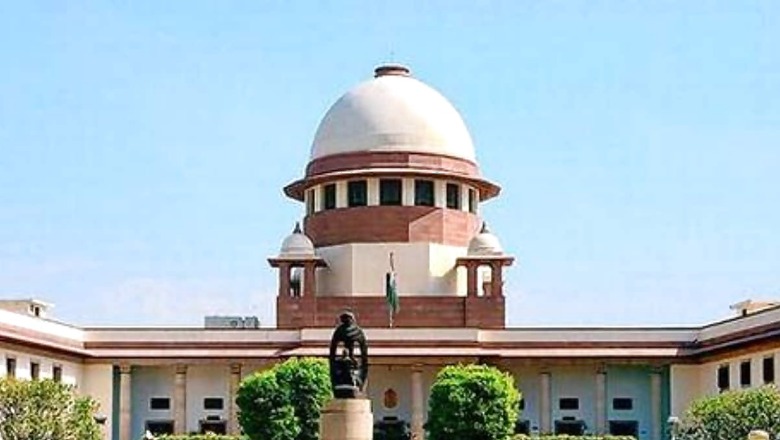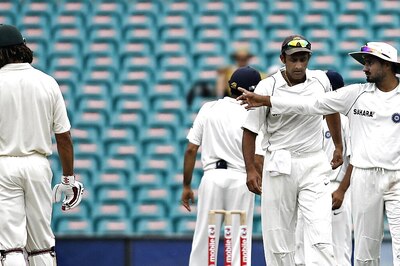
views
On October 17, the Supreme Court upheld Section 6A of the Citizenship Act and in the process cast its imprimatur on Assam Accord, which the late prime minister Rajiv Gandhi signed with the All-Assam Students Union (AASU) in 1985 after six years of violent movement and bloodletting. Small wonder both the Congress and the BJP are hailing the verdict as a ringing endorsement of their respective stands. In a majority verdict 4:1, the Supreme Court upheld the constitutional validity of Section 6A which grants Indian citizenship to immigrants who came to Assam between January 1, 1966, and March 25, 1971. The Constitution Bench, led by Chief Justice of India D.Y. Chandrachud, also upheld the cut-off date of March 25, 1971, for entry into Assam and granting citizenship as correct which tacitly approves the BJP’s stand that the continued influx well past the cut-off date is illegal and there is nothing wrong in sending the illegal immigrants back.
The Accord stated, among other clauses, that names of all foreigners coming to Assam on or after March 25, 1971, would be detected and deleted from electoral rolls with steps taken to deport them. This indeed is the point of discord. While the BJP wants to send the illegal immigrants crossing the borders after the cutoff date back home, the Congress seems to be speaking with a forked tongue and hemming and hawing. Justice Surya Kant, who was a part of the Supreme Court bench that upheld the constitutional validity of Section 6A of the Citizenship Act of 1955, rejected the idea of and plea for applying the provision to other states facing illegal immigrant issues such as West Bengal, saying “the problem in Assam is much severe”. This once again tacitly vindicates BJP in West Bengal and rejects the ruling TMC’s mollycoddling of the illegal immigrants. Justice Surya Kant, in fact, bemoaned the lack of implementation of the Citizenship Act as well as the Foreigners’ Act insofar as deportation of illegal immigrants are concerned.
The BJP, which is much pleased with the verdict, has been stridently demanding the deportation of Rohingya Muslims from Myanmar who have penetrated almost all parts of India. But it must walk the talk which sadly it hasn’t. The United Nations Refugee Convention, also known as the 1951 Convention, is a legal document that establishes the rights of refugees and the obligations of states to protect them. The convention was adopted in 1951 and came into effect in 1954. The United Nations Refugee Agency (UNHCR) is responsible for safeguarding the convention and its 1967 Protocol.
The convention’s key principles include restraining from deportment back to the country where they came from if they face serious threats to their life or freedom. This is now considered a rule of customary international law though subjective and lends itself to convenient interpretations. Refugees have the right to the same standards of treatment as other foreign nationals, and often the same treatment as nationals. This includes the right to work, education, housing, freedom of religion, and more.
The convention was initially limited to protecting European refugees displaced by World War II, but the 1967 Protocol removed geographic limitations. India, significantly, is not a signatory to it and thus its hands are not tied. After all, the refugee issue is not only humanitarian but also has tremendous economic implications. While the refugees do provide cheap labour as both India and Britain have realized, they cut into the scarce resources of the nation besides undercutting the employment prospects of the Indians.
It is time political parties came to a consensus on this deeply divisive issue. The BJP was bold enough to abolish Article 370 that applied to Jammu and Kashmir and cocooned it from other states and their people and brought the border state into the national mainstream. But courage and commitment alone would not be sufficient for acting against illegal immigrants as the world will view India as heartless and monstrous. Yet, it must act in the direction of deportment by persuading the countries the refugees fled from. The BJP knows that the nation has been tolerant of Sri Lankan Tamil refugees, the Buddhist Chakma refugees, Tibetans and the Bhutanese. The opposition, therefore, pounces on it for singling out Muslim refugees.
The issue needs to be addressed dispassionately. The BJP’s rivals and detractors point to the US as an example of a benign open-door policy forgetting that of late the nation is resenting the omnipresence of Hispanics from Cuba and Mexico and thus regretting its open-door policy. It still wants to be a land of immigrants but the immigrants must not be indiscriminately accepted is the Republican Party’s stance.
The writer is a senior columnist. He tweets @smurlidharan. Views expressed in the above piece are personal and solely those of the author. They do not necessarily reflect News18’s views.




















Comments
0 comment